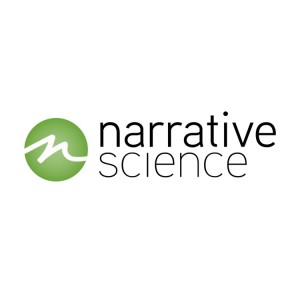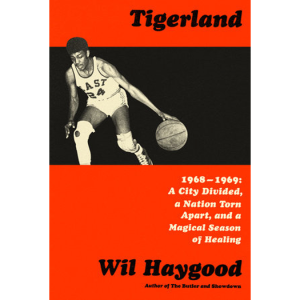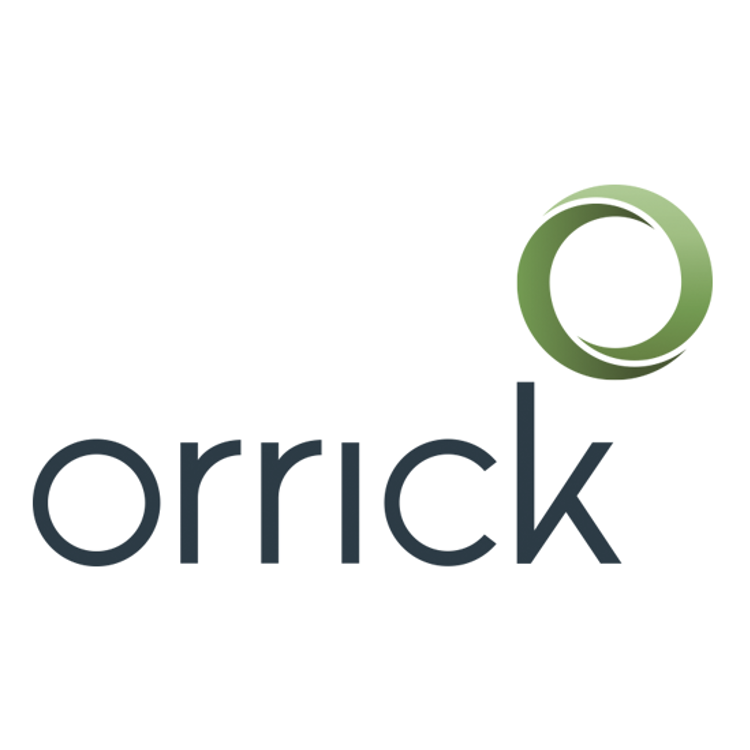Episodes

Wednesday Oct 31, 2018
Mitch Barns: CEO, Nielsen
Wednesday Oct 31, 2018
Wednesday Oct 31, 2018
Mitch Barns was destined for success. Any college student willing to bike 45 miles from campus as a student to get to a job interview is clearly dedicated. A Business Administration major at Miami, Mitch has spent the past 22 years in 11 roles at Nielsen. Currently, he is the CEO and will retire from his position at the close of the year. Two subjects we brainstormed in the conversation of interest include tips for students coming out of school (always saying yes, focusing on the fundamentals and learning from mistakes) and the value of a mentee – mentor relationship. And I love that he worked at Montgomery Inn (best ribs in the world)!


Wednesday Oct 24, 2018
Mike Fitzgerald: Partner, High Alpha
Wednesday Oct 24, 2018
Wednesday Oct 24, 2018
Mike Fitzgerald’s High Alpha business is fascinating. Not just the venture studio and Fund they have built, but the Sprint Week competitition where all employees compete against each other to determine what business the company should incubate. I love that. That is how you build internal culture. We spent quite a bit of time on the pod discussing how to formulate ideas and how to learn (I can never get enough of that subject). We also did some digging into the investment culture and the ratio of reviewing start-ups to actual investments. Anyone exploring this space will enjoy Mike’s perspective. His calculus story at Miami is a good one and sent him down a path of communications (which he says is a blessing and helped him into a sales-oriented path). We start with a conversation about the city of Indianapolis and Miami’s influence there.


Wednesday Oct 17, 2018
Dr. Jim Bertz: Oral and Maxillofacial Surgeon
Wednesday Oct 17, 2018
Wednesday Oct 17, 2018
What a memorable conversation I had with our next guest. It’s been more than sixty years since Dr. Jim Bertz graduated from Miami. That’s right, 60 years! His lifelong career has been in Oral and Maxillofacial Surgery, helping people around the world with conditions they would not have had the resources to address otherwise. But that is just the beginning for Jim. Our conversation winds us through his incredible career, and he shares some of his philosophies on what it takes to be a good doctor and a good person. Wait until you hear about his first job interview at Miami with the CIA! My favorite life lesson he shared on the call was doing things for people who cannot pay you back. Let that soak in for a minute and you will get a sense of what type of person Jim is.


Wednesday Oct 10, 2018
Josh Dahn: Head of School, Ad Astra School
Wednesday Oct 10, 2018
Wednesday Oct 10, 2018
Josh Dahn and his co-founder, Elon Musk, are out to disrupt the way we teach our children, and as a result, how they learn. In today’s pod, Josh walks through the reasons why change is needed and what they are doing differently. The art dealer sample lesson for elementary school kids that he explains is simply fascinating. The practical aspect of learning is very clear in this venture. The school they have created, Ad Astra (in Latin it means To The Stars) is located on the Space X campus in Los Angeles. Even if the entire model doesn’t work for all, some teaching through real life scenarios could benefit many.


Wednesday Oct 03, 2018
Bill Hemmer: Anchor, Fox News
Wednesday Oct 03, 2018
Wednesday Oct 03, 2018
Fox News Channel journalist and host of America’s Newsroom (and former CNN host) Bill Hemmer joins the pod today and shares insight on the importance of being curious to keep his mind fresh and to constantly learn. We spend time discussing the word trust in today’s challenged times – for all of us, and all corporations, not just the media. You can hear the passion in his voice when we talk about his time in Luxembourg with Miami. An absolute life-changer for him, and he is heading back in a few weeks to join up with Lux alumni and current Miami students. The discussion also digs into who has given him the most inspiration and some solid tips for students coming into the work force. We begin the discussion talking about the time he was embedded with the U.S. Marines for several months in the Middle East.


Wednesday Sep 26, 2018
Chip Chinery: Actor, Stand Up Comedian
Wednesday Sep 26, 2018
Wednesday Sep 26, 2018
I’ve been watching this week’s guest perform for almost 30 years – first, when he would return as an alum and do stand-up at Balcony (a bar that is no longer in Oxford) and now, on countless sitcoms and movies. Chip Chinery has appeared in, among many others, Seinfeld, Friends, 3rd Rock, Curb Your Enthusiasm, Family Guy, and most recently the movie Battle of the Sexes (and countless TV commercials). In the pod Chip talks about how creating a day-in-the-life documentary of his senior year led to his first job out of college at a news station, and the importance of friendship - as it was a Miami fraternity brothers father who helped him land his next job with a bank (which paid for his stand-up touring). Chip also has some great stories that give insight into the world of a working actor in Los Angeles, from finding out the day before about important auditions, to attending a movie premier only to learn you’ve been cut out of the film (it’s an epic tale). Make sure you stay until the end to hear about his on-set conversation with award-winning actress Emma Stone and the Miami connection they have together.

One highlight from Chinery’s career
- Got the opportunity to work with Donald Sutherland and Clint Eastwood in Space Cowboys.
- Ultimately got cut out of the movie, but was surreal in acting with Donald Sutherland.
Didn’t find out he was cut until he was watching it at the premiere
- Invited to the screening and realized at the end his scene was cut.
- Got a letter in the mail the next day letting him know they cut the scene out.
Sometimes you find out the night before or the day of that you have an audition
- In TV shows and movies, it’s quite normal and not uncommon for this to happen.
Why Miami
- Chinery had first cousins that went to Miami and he visited them when he was younger.
- Thought the idea of college was so cool and fell in love with the campus.
Always was interested in comedy.
- Started doing stand up when he was 16 and continued this through his high school and college days.
Realized he didn’t want to do business after a 8:00am M-F Calculus class.
- Originally wanted to take mass communications, but his mom wanted him to go to the business school.
- Realized quickly he didn’t want to do business after the 8:00am calculus class.
- Decided to become psychology major.
After graduating Miami.
- Always been interested in video and TV and stand up.
- Had done some video projects for the Channel 9 News in Cincinnati and gave his boss a call asking if there were any open positions.
- His boss offered him a job as a cameraman.
- Left Channel 9 to become a PR director of a bank.
Keep your friend’s parents in mind for employment.
- Got to be the PR director of a bank because he sent out letters to parents of his frat to buy this year in the life video for his fraternity.
- CEO of the bank reached out to him (who was a parent of his fraternity brother) and said he might have a job for him.
Transitioning into stand up.
- When Chinery got offered the job in CT, he wanted to make sure he could do stand up there.
- A mutual friend connected him with a stand up guy in the area.
- Chinery was the PR director for 8 months, but realized it wasn’t right for him.
- Chinery’s boss told him he should go do stand up full-time.
Chip’ s Money Tip’s Blog (http://www.chipsmoneytips.com/blog/)
- Chinery felt he had some common sense ideas for money tips, so he started a blog to help people.
Emma Stone’s parents went to Miami University (and her aunt).
- Chinery worked with Emma Stone on Battle of the Sexes.
- Found out her folks are from Columbus and went to Miami and her family graduated from Miami.
- Chinery realized he knew her aunt Karen.
Next iconic actor he wants to work with:
- Christopher Guest.

Wednesday Sep 19, 2018
Stuart Frankel: Founder & CEO, Narrative Science
Wednesday Sep 19, 2018
Wednesday Sep 19, 2018
Focus and listen. It’s what I had to do after my conversation with Stuart. I went back to the beginning of it, listened and learned. He is not only a great storyteller but a teacher too. Stuart is the Founder and CEO of Narrative Science, a company that interprets millions of data sources and transforms it into insightful, natural language narratives. His industry and brand are cutting edge and AI is certainly part of the now and the future. But just as important, I loved his vision of wanting to be “the somebody else,” the client that was being served, which led to an abrupt change in careers (the story is worth listening to). You will also appreciate and respect the business business opportunity he got from a CEO after seeing him (and really only him) on countless Saturdays in the office.

Podcast Notes:
Stuart’s career from Miami
- Accounting major from Miami and started working for PwC.
- Went to Vanderbilt Law School and was a corporate lawyer for three years.
- Frankel got an opportunity with a client to work on a project that excited him.
- After a couple months, Frankel got word that the project was canceled.
- Took some time to figure out exactly what he wanted to do from there.
Coming into the office on a Saturday?
- In office every Saturday 9am-3pm.
- The only other person who would come in was the CEO.
- If you work a little harder than the other person, this can give you a significant advantage over them.
Why Stuart got the promotion
- He was the youngest people there and the CEO thought that younger people would understand and adopt emerging tech and things better.
- He had been bugging him in the past 6 months about implementing new ideas.
- He was there and showed up even on the weekends and the CEO felt he could do this job
Take the risk.
- When the project was canceled, he had the choice to go back and practice law or to discover another area of business he was interested in.
- Frankel didn’t look at what the next three years would be, but he looked at what the next 30 years could be.
Working in AI (Artificial Intelligence), there’s always two sides...
- Creation of technologies: this is where a lot of work is being done by large companies (Google, Microsoft, etc), but also smaller companies.
- Market adoption: this is the harder step because it takes a lot for people to adopt and like the technology.
Always be in a learning mindset.
- Read everything.
- Listen to a lot of podcasts.
- Surround yourself with people of very different backgrounds.
- Learning doesn’t stop at 22.

Wednesday Sep 12, 2018
Wil Haygood: Author, Tigerland
Wednesday Sep 12, 2018
Wednesday Sep 12, 2018
Pulitzer-nominated Wil Haygood has made a career out of telling some of the most interesting, if overlooked, stories in American Life. Most notably, he penned the story "A Butler Well Served by this Election" for The Washington Post which became the basis for the award-winning 2013 film "The Butler" and for Haygood’s New York Times’ best-selling book of the same name. His seventh book, TIGERLAND: 1968-1969, A City Divided, a Nation Torn Apart, and a Magical Season of Healing, was just given to all Miami University freshman upon arrival into Oxford this August and thanks to Penguin Random House, weeks in advance of the actual book release. He addressed the incoming students at Miami’s convocation on August 24 and discussed the importance of race relations. The pod examines his writing success but also digs back into his childhood. Wil was the first person from his family to attend college, and he talks joyfully about knowing the moment he came onto campus that it was the only place he wanted to be. I was also fascinated with his description of his book writing process. You can pre-order the book (release date September 18, 2018) via Amazon
Podcast Notes:
“When there’s unity, good things happen”
Where Haygood’s love of writing began.
- A teacher told him he had a writing gift, when no one had said that before.
- Decided to go to Miami with full intention of taking English literature courses.
- Majored in urban planning with minor in English literature.
Why Haygood chose Miami.
- No one in his family had gone to college and he knew it was going to be a tough challenge.
- Went to his high school counselor's office and took a stack of pamphlets about colleges.
- Immediately was attracted to Miami because of the the red brick and loveliness of the school grounds.
- Told his counselor that he wanted to go to Miami and she told him that she didn’t think he could get into Miami.
- He got offended by that which made him try harder to get into Miami.
- Local high school teacher took him to visit the campus, six weeks before classes started.
- Knew once he had seen the campus that he was happy he committed to Miami.
Growing up in Columbus was different than it is today.
- Grew up on the north side of the city.
- On the north side, the grade school and high school were all racially mixed.
- His mother and him moved to the east of Columbus and the schools were segregated there.
It was difficult, but Haygood graduated.
- He knew what was at stake and he knew he had to succeed for himself, his family, and to inspire others.
- School was hard and he struggled, but he loved taking different courses.
- He had some caring professors who he could tell wanted him to succeed and that made him work harder.
- From there, he started to understand what a writing voice was and grew into his writing.
What gives him the inspiration to write each book
- When he walks into bookstores and he wants to see a book about a certain subject matter, if he don’t see the book he says to himself that he’s going to write it.
Haygood’s writing process for Tigerland.
- Started traveling to Columbus to find and talk to the athletes.
- A lot of the athletes got emotional about sharing their story because they thought their stories had been forgotten about.
- Interviewed around 125-150 people to understand more about the story.
Key takeaways from Tigerland.
- Sports and sports figures have always brought the country together.
- With race being a long overdue discussion right now, it’s important to look at where there are triumphs.
- It’s a story that inspires people and exemplifies the best of the human spirit.
What’s next for Haygood.
- Not totally there yet with the idea, but it’s going to have a focus about the world of movies
How “The Butler” came to life onscreen.
- Wrote the story and it appeared on Washington Post.
- That same night, he had eight phones calls from major Hollywood producers telling him they wanted to buy the rights to his book.
- Once he sent the screenplay out, the story interested great actors to be casted in movie.
Wil Haygood’s book, Tigerland, comes out September 18th, you can pre-order Tigerland on Amazon.

Wednesday Sep 05, 2018
Lisa Dallmer: Business Builder, Technology & Financial Services Leader
Wednesday Sep 05, 2018
Wednesday Sep 05, 2018
I have talked to some wonderful people on this podcast, but it is just a bit sweeter when you can reconnect with a friend from your college days. Lisa and I have been friends for more than 20 years (really almost 30), and it’s been incredible to watch her career blossom. And frankly, she has crushed it over the past few decades. And now she provides a unique podcast perspective as she is between jobs – something not many would be open to talk about. You will love her story about being called the wrong name repeatedly at the Miami job fair and years later, her cold call to a CEO. Both ended with jobs. She has a thirst to learn and spends time in the pod discussing inspiration, the need of space to think and how to understand signals of communication.

Podcast Notes:
“Ask for what you want and you might just get it”
Inspiration comes from learning.
- Lisa credits her inspiration to always wanting to learn and being on the learning curve. Lisa believes learning is where real growth comes from and it’s best to learn by doing.
Sometimes cold calling a CEO works...
- Lisa cold called to the CEO of a company after leaving a technology start-up. She gave pitch and the CEO said sure. This lead back to her continuous need to learn and did this through reading, talking and taking in as much she could.
The importance of having a “figure it out” mindset.
- If you have a figure it out spirit, you can get a lot of things done
- Lisa spent a semester at the London School of Economics and wanted to challenge herself to learn French. She did and credits this mindset to how she really grew as a person personally and professionally.
- It is crucial to learn how to have the ability to adapt, change and have the ability understand all signals of communication, especially when traveling abroad.
Understand what’s said and what wasn’t said.
- When you understand the signals of communication, it’s most important to realize what you miss
- You can pick up on this and realize how decisions are still made
- This is important to understand when being leader and role model
- Example: when a leader announces a promotion, all employees read into what is said, but also what is not said. Be careful.
Miami University is full of opportunity.
- Opportunities are there and you just have to recognize it and reach out and grab it
- Miami gave Lisa the confidence that she can ask for what she wants and this ability has helped her succeed in her career
Ask for what you want.
- Ask for what you want
- Example: Lisa was attending the career fair at Millet Hall and walked up to a recruiter, who kept calling her the wrong name. She told the recruiter she wanted to apply for the investment banking internship and the recruiter told her they only hire Ivy League students for that internship, all while calling her the wrong name. Lisa corrected her name to the recruiter and walked away saying she was only interested in the investment banking internship. A month later, the recruiter called her to tell her she was accepted to move forward to phone interviews for the investment banking group. Lisa ended up getting the internship and is a great example of asking for what you want.
- Don’t expect your school or employer to just put what you want on the silver platter for you, you need to tell them
It’s good to take a step back and reflect on what you’re doing.
- Lisa left her job because she realized she was starting to plateau and she wasn’t sure it was what she wanted to be on career path wise. Lisa wanted to step away from work in order to really reflect on what she wants to do next. Continuing with always wanting to learn, Lisa wants to challenge herself and immerse herself in a steep learning curve.
So, what’s next for Lisa?
- Lisa is interested in artificial intelligence and how we are applying it to other industries. It is a gamechanger for how we can use data and predictive modeling to make better decisions to help consumers.
It’s important to recharge.
- Step away from work and dedicate time to yourself.
- Lisa decided to make a plan where her kids would go on a new vacation to a new location and try foods and different cultures once a month. It’s invites the space to think, as well as ushering in great adventures.
- When creating the space to think, Lisa exercises more, sleeps better, and relishes the time.
Where can you find the space to recharge?
- So many executives are go, go, go, and multitasking.
- Initially, Lisa didn’t create the space to think in any of last jobs.
- She recognizes this as failure to herself and family and now is working hard on creating deliberate tools to create the space to think. Example: walking to work instead of commuting where you can just think, free from distractions.
Lisa’s advice to young Miami University professionals.
- Don’t be so set on having a game plan that you lose other opportunities that come your way
- Experiment with different careers and roles
- Be a risk taker
- Your first five years of your career will be the most important because this is where you learn what you’re good at and what you think to do. It’s important to get a understanding and a synthesis of that to get a robust view of that
- Try a lot of things and don’t be afraid to do that when you get older
- Always try to keep yourself in change agent mode and risk-taking mode

Wednesday Aug 29, 2018
Jeremy Kudon: Partner, Orrick
Wednesday Aug 29, 2018
Wednesday Aug 29, 2018
We caught Jeremy Kudon at a pivotal time in his business. As the foremost lobbyist in the gambling/betting industry and client of daily fantasy giant DraftKings and several professional sports Leagues, he has been working 24/7 since the Supreme Court ruling allowing states to decide on their own to have legalized sports betting or not. The Founder of Orrick’s Public Policy group, Jeremy helps influence legislation at the state-wide level for all his clients. Similar to many alumni I talk to, he specifically points out a professor and classs (MKT 301, 401) that helped shape his mind on what he wanted to (and sometimes didn’t want to do) next. For him, it was Don Norris (also one of my favorites). We started off the podcast discussing the moment and then the subsequent hours after the Supreme Court ruling was released.

Podcast Notes:
“I didn’t want to look back 50 years later and say I didn’t pursue something I wanted to pursue”
24 hours in a litigator’s life once a big ruling comes out.
- Currently in Boston, he was meeting with Massachusetts Attorney General with major leagues to talk about sports legislation betting.
- Once the opinions started coming out, he waited to hear what the ruling was. It was a 7-2 for the petitioner (in favor).
- From there, his phone was constantly blowing up with emails from his clients, friends, and co-workers.
- He originally planned his day to consist of a series of meetings with legislators that day, but needed to meet with league clients to New York.
- He flew to New York that same day to meet with his clients.
- Met with clients to start planning the next steps in strategy.
What Jeremy Kudon does...summarized.
- He works with clients that are private companies and sports leagues o try to get the betting legalized.
Jeremy Kudon’s career path to where he is now.
- First, Kudon started as a commercial litigator working on big accounting liability cases.
- His clients at the time were DirectTV and Dish Network and they hired them to be a appellate lawyer to work on helping the companies develop and implement a national state legislative campaign.
- The first years of the work were far from exciting; once he started working on the cases, he started to get a niche in it.
- Kudon then got a call from Uber in 2014 to come in and help them, but after two meetings they realized there was a conflict.
- From there, Kudon started to reach out to other companies and eventually emailed the founder of FanDuel.
- No one ever responds to the cold-emails, but the CEO of FanDuel responded. Three months later, he started representing DraftKings and FanDuel.
What to write in an email to potentially get new business.
- Introduce yourself
- Make fun of the fact that you don’t normally send emails
- Make the point of emailing
- Example: Kudon was basing his email from feedback of legislators saying FanDuel could face issues if they didn’t hire him and start focusing on state legislators
Why Jeremy Kudon chose Miami.
- Kudon swam in high school and was recruited by the swim coach.
- He also loved the campus when he got there.
- He was a big fan of the “Public Ivy” book and learned that the guy went to Miami.
- His mom had dated a hockey player at Miami and said she had fond memories at Miami.
- Six other people from high school went to Miami.
- He was excited to leave the DC area and try out the midwest because of Miami’s great academic reputation.
Make sure you thank your professors.
- Two great professors influenced his career: Augustus Jones (political science) and Donald Norris (marketing).
- Keep in touch with your professors, especially if they made a big impact on you
- Example: Kudon didn’t keep in touch with his professors and he advises to try more often to let professors know how they made an impact on your life.
The law school decision.
- Didn’t go to law school after college until 3 years after.
- Kudon worked in marketing and was doing well.
- He still loved law and wanted to practice it; he didn’t want to look back 50 years later and say he didn’t pursue something he wanted to pursue
Advice for before you jump into law school.
- You need to learn the ropes of the law because it’s so big and it’s not what what it looks like on TV
- Law school is a way to approach life. You’re supposed to look at the world as grey, not black and white.
- You have to look at the argument and understand both sides of the argument.
What’s next in sports betting.
- Each state taking on the issue and opening up the markets.
- 10-12 states are going to follow
- 6 states have legislation on the books
- 3-4 are actually operational
- New Jersey has a true mobile prodiver (SportsKings)
- This will revolutionize sports betting in the US and once other states see the markets flourish, more states will adapt.

